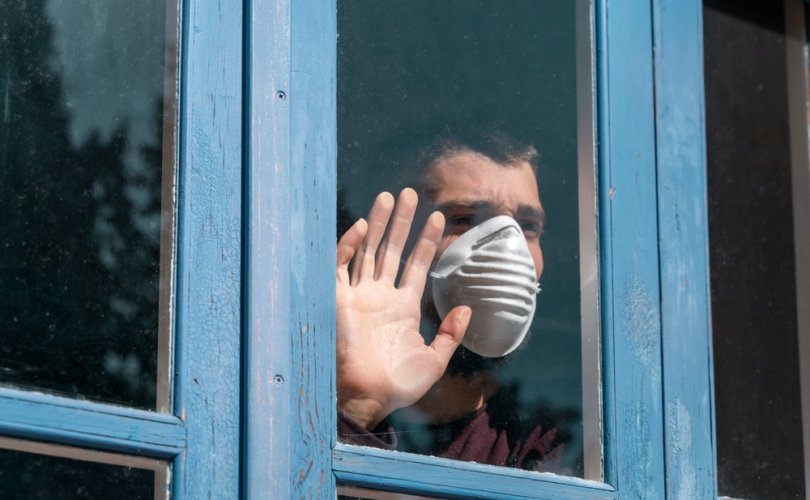WASHINGTON, June 9, 2021 (LifeSiteNews) — A Gallup poll published June 4 shows that 71 percent of Democrat voters “believe people should stay home as much as possible” in order to “stop the spread” of COVID-19, regardless of whether they are healthy and have no symptoms of the coronavirus.
The poll showed that this number is down 14 points from April when as much as 85 percent of Democrats said even healthy people should still remain in their homes, as opposed to “leading normal lives as much as possible.”
On average, though, the number of people polled who answered that individuals should “lead normal lives” marginally surpassed those who answered that they should “stay home as much as possible” by 56 percent to 44 percent, the first time “living normally” has been a majority position in Gallup’s polling since March 2020. At that time, Gallup found that 91 percent of people polled recommended staying at home to “prevent the spread of the virus,” even if healthy.
The slight statistical edge on “normality” emerged recently thanks to 87 percent of Republicans and 64 percent of independents saying they would recommend healthy people to live normal lives, compared with only 29 percent of Democrats.
Democrat hesitancy about “living normal lives as much as possible” comes despite the same poll finding that 66 percent of Americans feel their lives are at least “somewhat,” if not “completely,” back to normal.
Unsurprisingly, Democrats polled the lowest in terms of feeling as though their lives were no longer badly disrupted by COVID-related restrictions, with 57 percent reluctant to say their lives “are at least somewhat back to normal.” On the other hand, Republicans (77%) and independents (68%) again outstripped their Democrat counterparts in “post-pandemic” optimism.
Overall, 20 percent of Americans now say they “are ‘very’ or ‘somewhat’ worried that they will get the disease,” down from a high of almost 60 percent towards the end of summer last year. Gallup did not provide a breakdown of partisanship on this particular question.
When it comes to taking a COVID vaccine, the pollster found that about a quarter of Americans does not plan on being vaccinated, 78 percent of whom told Gallup that they would not consider changing their mind on the matter. Of that 78 percent, 51 percent said they are “not likely at all” to ever take a COVID vaccine, and just 2 percent saying they are “very likely” to reconsider the jab.
Though almost a quarter of all Americans said they would reject the vaccine, the political breakdown of this demographic leans heavily towards Republicans, who account for a 46 percent representation in the “vaccine-reluctant” group. This is compared with a mere 6 percent of Democrats in the same group, and 31 percent identifying as independent of the two major parties.
Gallup added that “Americans without a college degree are much more likely than college graduates to be vaccine-hesitant, 31% to 12%,” and that “[v]accine hesitancy is more common among middle-aged Americans (33% of those between the ages of 35 and 54) than among younger (22%) and older Americans (20%).”

